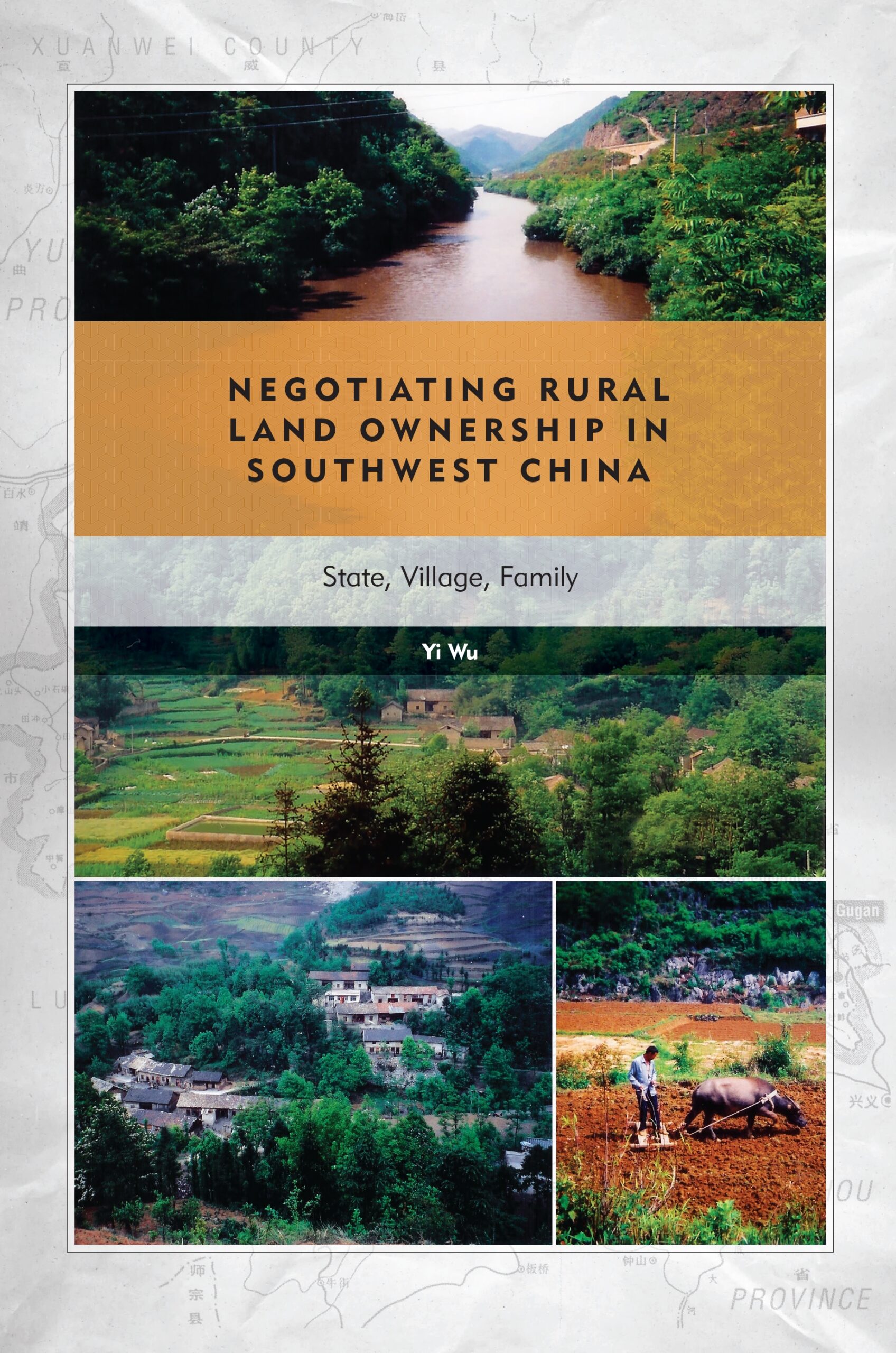Negotiating Rural Land Ownership in Southwest China: State, Village, Family
- About the Book
-
Negotiating Rural Land Ownership in Southwest China offers the first comprehensive analysis of how China’s current system of land ownership has evolved over the past six decades. Based on extended fieldwork in Yunnan Province, the author explores how the three major rural actors—local governments, village communities, and rural households—have contested and negotiated land rights at the grassroots level, thereby transforming the structure of rural land ownership in the People’s Republic of China.
At least two million rural settlements (or “natural villages”) are estimated to exist in China today. Formed spontaneously out of settlement choices over extended periods of time, these rural settlements are fundamentally different from the present-day administrative villages imposed by the government from above. Yi Wu’s historical ethnography sheds light on such “natural villages” and their role in shaping the current land ownership system. Drawing on local land disputes, archival documents, and rich local histories, the author unveils their enduring social identities in both the Maoist and reform eras. She pioneers the concept of “bounded collectivism” to describe what resulted from struggles between the Chinese state trying to establish collective land ownership, and rural settlements seeking exclusive control over land resources within their traditional borders.
A particular contribution of this book is that it provides a nuanced understanding of how and why China’s rural land ownership is changing in post-Mao China. Yi Wu uses village-level data to show how local governments, rural communities, and rural households compete for use, income, and transfer rights in both agricultural production and the land market. She demonstrates that the current rural land ownership system in China is not a static system imposed by the state from above, but a constantly changing hybrid.
- About the Author(s)
-
Yi Wu, Author
Yi Wu is assistant professor of anthropology at Clemson University. She received her PhD in cultural anthropology from Columbia University.
- Reviews and Endorsements
-
- This is a study from the ground up. Its focus is not just on state policies, or property laws and systems, or “socialism” and “capitalist reforms,” but rather on longstanding community (the natural village) and familial organizations and traditions that also shaped change, in ways that will surprise many readers.
—Philip C. C. Huang, University of California, Los Angeles - Yi Wu’s pioneering research on contested property relations draws on more than a decade of innovative fieldwork in villages and courts in rural Southwest China. Her framing concept of “bounded collectivism,” emerging from the study of land disputes, draws attention to powerful continuities that never ceased to define rural life through the storm of land revolution, collectivization and Cultural Revolution to the contemporary era of market-driven family farming. Where many studies have focused on the role of the Party in reshaping rural society, Wu highlights the continued salience of cultural norms rooted in rural settlements and families in shaping significant social outcomes.
—Mark Selden, Cornell University - No issue in China’s countryside is more vital or more controversial than land rights. This readable and illuminating book based on extensive grassroots research reveals the economic predicaments faced by rural families, why conflicts erupt between villages, and the very different interests of villagers, local governments, and the central state. Few books about rural China provide as good a grasp of the situation today as this admirable study.
—Jonathan Unger, The Australian National University
- This is a study from the ground up. Its focus is not just on state policies, or property laws and systems, or “socialism” and “capitalist reforms,” but rather on longstanding community (the natural village) and familial organizations and traditions that also shaped change, in ways that will surprise many readers.
- Supporting Resources
-










